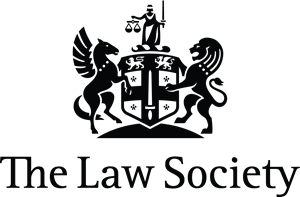The United Nations Refugee Convention 1951 gives individuals right to claim asylum in another country. A person is able to seek asylum in the UK if they cannot return to their home country due to fear of persecution. By claiming asylum, you ask the UK government to give you protection. This is referred to as international protection under the 1951 Convention.
To be able to make a claim for asylum, you must meet the eligibility criteria. You must have left your country and be unable to go back because you fear persecution in your home country.
Call us on 0207 100 2525 for immediate help & assistance with your situation.
We’re here to help you in person, via the phone or online.

To be able to be successful on your asylum application you must be able to prove that you are unable to re-locate to another area in your country of origin or in any case, return to your country or origin as you have a “well-founded” fear persecution. This means you do not need to show that the persecution would definitely happen, but that there is a real risk it could happen.
Persecution is serious, targeted mistreatment of an individual because of who they are, or what they do, or what people think they are or do. The Home Office defines persecution as an act that is sufficiently serious by its nature or repetition as to constitute a severe violation of a basic human right. Persecution could also be an accumulation of various measures which would make it sufficiently serious.
The following categories have been outlined by the UK government that the persecution can be based on:
You must be able to show that you either fear persecution from state actors or from non-state actors but importantly, that you were denied protection from officials and enforcement agencies in your country of origin.
There are circumstances under which your asylum claim may be denied by the Home Office. If you are coming from another EU country, or you have travelled through another country on the way to the UK, your claim may not be accepted under new rules that were introduced since Britain left the EU.
The screening interview is the first stage of the process to claim asylum in the UK. You will be asked to provide a record of your personal details, some background information, your immigration status, and whether you have any health or medical needs. You should take your time and ensure you provide accurate information. You will also be asked to provide biometric information including photographs and fingerprints. Some of the questions you may be asked include:
The official taking your screening interview will ask you the basis on which you are claiming asylum. You are required to bring any relevant documents with you that support the claim you are making. The interviewer will not ask in-depth questions about the persecution you face and the interview usually lasts between 1 – 2 hours. You will be provided a copy of the answers at the end of your interview.
This process allows you to register your claim for asylum with the Home Office and following this, the Home Office will make a decision on whether your asylum claim can proceed to next steps. If you receive confirmation that you can make a claim, you will subsequently be required to attend a substantive asylum interview with a caseworker.
You case will also be categorized into one of the following categories:
The categorization will have an impact on your asylum claim. For instance, if your claim is categorized as detained non-suspensive appeal, you will be detained following the screening interview. Further, there is no right to appeal this decision following a substantive asylum interview.
You can claim asylum as soon as you arrive in the UK or if you are already living in the UK and become eligible to seek asylum due to a change of circumstances which mean you cannot return to your home country, you should seek asylum then.
Your application is more likely to be denied if you wait and claim asylum at a later stage as the Home Office may assert that you are not in real danger of persecution if you do not make a claim on arrival. Overstaying the time period you were allowed under your previous visa conditions can also have a same detrimental impact and you may be required to provide reasons for the overstay.
If you are claiming asylum on arrival, you should notify the Border Force officials that you are seeking asylum protection. You will be directed to your screening interview with an immigration officer.
If you are claiming asylum whilst you are already in the UK, you should contact the asylum intake unit to schedule a screening interview with an immigration official. You may be able to walk-in depending on your circumstances for instance, if you are an unaccompanied child under 18 years.

The substantive interview provides you an opportunity to explain all the reasons why you are claiming asylum. The Home Office official will ask in-depth questions about your background and details of the persecution you experienced in your home country.
Due to the nature of questions that are asked, the interview is very lengthy. It can last between 6 – 8 hours. You are entitled to bring an immigration lawyer or solicitor with you to this meeting. You may be able to get an interpreter if you have a language barrier.
The substantive interviews are recorded as standard, and it is strongly recommended that you seek a copy of the recording and the written transcript following the interview
The interview can be challenging as the purpose of the interview is to explore the persecution you have faced. You are allowed to request for a break at any point throughout the interview. The Home Office officials understand that the interview may contain elements of emotionally traumatic experiences, but they should allow you time and remain impartial and objective. To better understand your experience, the Home Office officials may ask probing questions and ask for further clarity, even if you have already provided this. It is crucial for you to ensure that the details you are providing are correct and can be correlated.
The substantive interview usually follows a chronological order. The interviewer will ask for a chronological account of your story and the reasons for your asylum claim. If you are uncertain about a date, or you are unable to remember, you should say that you are unsure. Your application may be impacted if you provide different dates for your story.
It is at this stage when you provide documentary evidence that supports your fear of persecution. In cases where this is not available, you should provide as much information as possible about a relevant incident. This can include details of the people involved, whether they belonged to a particular group, where it took place, when it happened, whether you reported the incident to the enforcement agencies, whether you were imprisoned, whether this resulted in medical or psychological issues, how you left the situation, if anyone supported you and details of the personal involved if possible.
Following the substantive interview, a caseworker reviews your asylum claim and the supporting documentary evidence that you provide with your application before reaching a decision.
As the substantive interview is a crucial step in your asylum claim, it should be dealt with utmost care. It is essential to work closely with your immigration lawyer in advance of this interview. The experienced Immigration team at Adam Bernards will discuss your story with you and will help you prepare the most effective a
You may be required to submit a number of documents. Each stage of the asylum process requires different documents.
For registering your claim and initial screening interview, you are required to provide:
If you are making an asylum claim when you are already in the UK, along with the documents listed above, you are also required to provide a proof of address. You can prove your UK address by providing:
The documents required at the stage of your substantive asylum interview may take different forms. Your claim for asylum may be strengthened if you can produce documentary evidence of your persecution in your country of origin. While this might be very difficult to obtain, it is recommended to provide your interviewer with as much evidence as possible. Depending on the particular circumstances of your case, the following might be beneficial:
It is important for you to ensure that the documentary evidence is genuine and not falsified in any way. If you are found to have provided a falsified document, it can have a significantly detrimental impact on your asylum claim.
Our experienced solicitors can advise you on the types of documents that you should submit to the Home Office as part of your application claim. This can be a crucial part of the process and we can ensure that all the information submitted is accurate and relevant.
You will receive a decision on your application within approximately 6 months from the date of your substantive interview. However, it may take longer than 6 months for the Home Office to reach a decision on your asylum claim.
Whilst a decision is being made on your asylum claim, you will not be allowed to work in the UK. You might also be required to attend asylum Reporting Centers at a specified time. Under certain circumstances, you may be detained while you are waiting.
The support you may be entitled to includes accommodation, a cash allowance or both.
If you are homeless, you will be given somewhere to live if you need it. This could be in a flat, house, hostel or bed and breakfast. You cannot choose where you live.
If you are eligible for a cash allowance, you will get £39.63 for each person in your household. This will help you pay for things you need like food, clothing and toiletries. Your allowance will be loaded onto a debit card (ASPEN card) each week. You may be entitled to extra money if you’re pregnant or a mother of a child under 3 years.
You may get free National Health Service (NHS) healthcare, such as to see a doctor or get hospital treatment. You will also get:
if you children aged 5 to 17, your child must attend school. All state schools are free and your children may be able to get free school meals.
When you claim asylum, the Home Office will consider what you say in your screening interview and your bigger substantive interview.
They will use this information to decide if they think you have a well-founded fear of persecution (or more widespread violence). They will decide if that persecution falls under one of the Refugee Convention grounds. They will also consider whether you could be protected from harm by your own government, or whether you could live somewhere else in your country to be safe.
As well as looking at the records of your interviews and any statements or evidence you give to them, the Home Office will use their own guidance documents about your country to make their decision.
If your application is successful, there are three outcomes. These are:
The rights you will entitled to vary on the outcome of your case. For instance, if you are granted a refugee status, you may stay in the UK for five years, with access to benefits, work, and housing. You may also apply for a travel document. The travel document will enable you to travel to countries except your country of origin. Following this period, you can apply for Indefinite Leave to Remain and one year after this you can apply for naturalization to become a British citizen. However, if you are granted humanitarian protection, you do not have the right to apply for the travel document.
If your application is unsuccessful, depending on the stage and type of case, you may be able to appeal the decision. If the decision includes in-country right to appeal, you will be able to appeal the decision in a First Tier Tribunal. If the judge accepts your appeal, the appropriate status may be granted. The Home Office reserves the right to appeal the decision made by the First Tier Tribunal.
If the decision by the Home Office does not include in-country right to appeal, you may be able to challenge the decision by applying for a judicial review in the Upper Tribunal. if the judicial review has a positive outcome, your case will proceed to First Tier Tribunal as usual.
If the First Tier Tribunal’s decision is appealed by, the Upper Tribunal will make a decision. If it is refused, your appeal rights may be exhausted and depending on the circumstances of your case, you may be forcibly deported from the country by the Home Office or asked to return to you country of origin voluntarily.
Copyright © 2025 Adam Bernard Solicitors. This Firm is Authorised & Regulated by the Solicitors Regulation Authority SRA NO: 598171, 656730.





